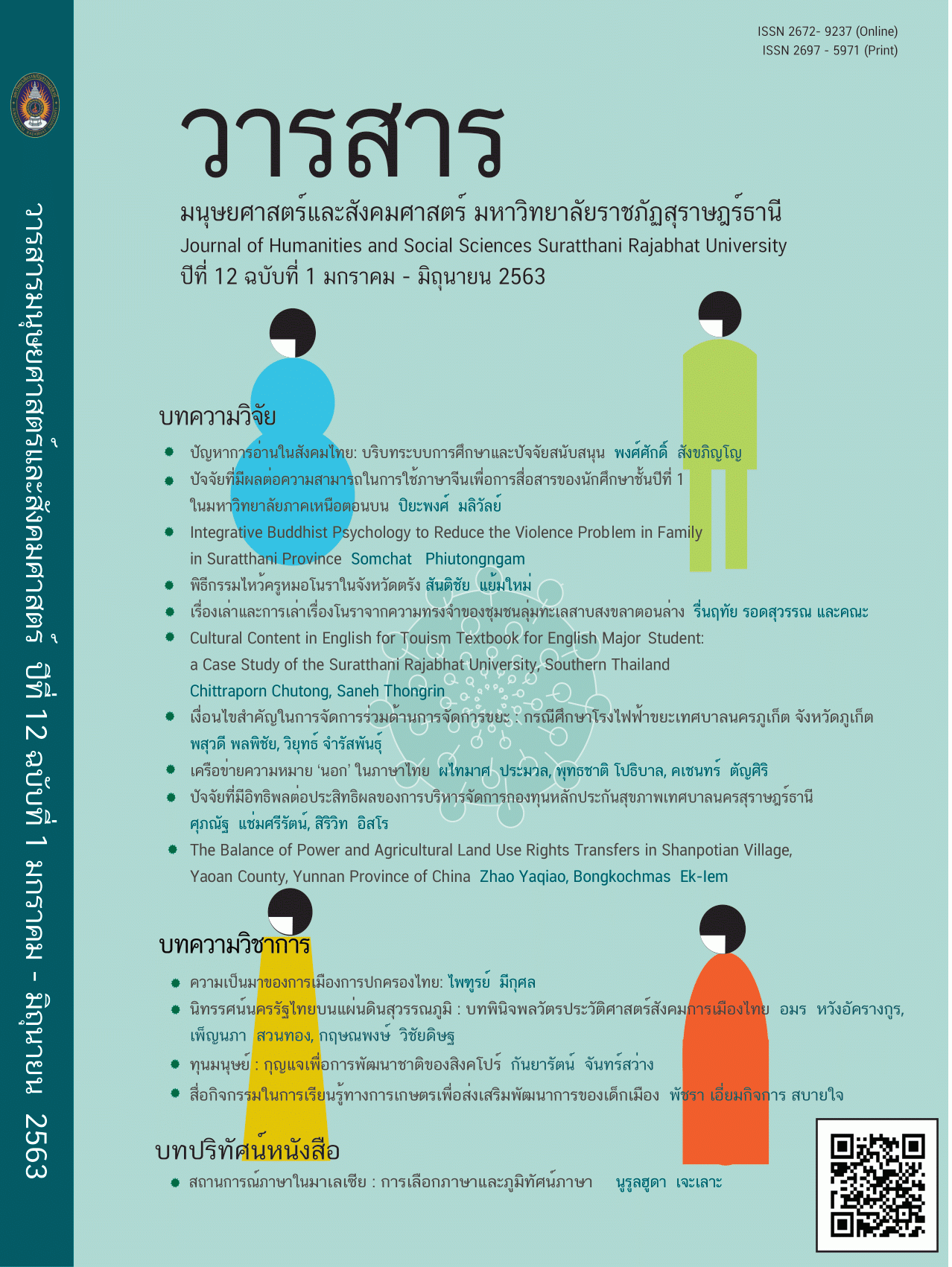Human Capital : The Development of Human Resource, The Development of Country
Main Article Content
Abstract
Currently, change is more complex and challenging. Management in all sectors, whether it be business, state enterprises, or governmentagencies, has to be adapted in order to compete and create continuous growth of the organization. Human capital has become an important capital of the organization, which can create a competitive advantage and value for the organization. This academic article aims to explain the meaning ofhuman capital, qualifications of human capital, the importance of human capital and principles and concepts of human capital. The author hasstudied and gathered information about the successful development ofhuman capital of Singapore which uses quality education systems as the driving force. This reflects the problem of human capital development within the country, especially the reform of the Thai education system that should primarily focus on the ability of students and create a Thai society to be a learning society for people of all ages.
Article Details

This work is licensed under a Creative Commons Attribution-NonCommercial-NoDerivatives 4.0 International License.
All published manuscripts have been verified by peer-peer professors in the fields of humanities and social sciences. Reprinting of the article must be authorized by the editorial staff.
References
ธนาคารโลก. (2018). ดัชนีชี้วัดการพัฒนาทุนมนุษย์ ปี 2018. [ออนไลน์]. เข้าถึงได้
จาก https://www.worldbank.org/en/data/interactive/2018/10/18/
human-capital-index-and-components-2018. [2562, สิงหาคม 26].
ธำรงศักดิ์ คงคาสวัสดิ์. (2550). ทุนมนุษย์ การกำหนดตัวชี้วัดเพื่อพัฒนา. กรุงเทพฯ :
สมาคมส่งเสริมเทคโนโลยี (ไทย - ญี่ปุ่น).
นิสดารก์ เวชยานนท์. (2559). การบริหารทุนมนุษย์เชิงกลยุทธ์เพื่อเพิ่มมูลค่า
(พิมพ์ครั้งที่ 2). กรุงเทพฯ : คณะรัฐประศาสนศาสตร์ สถาบันบัณฑิต
พัฒนบริหารศาสตร์.
ภูวดล ทรงประเสริฐ. (2546). ชาวจีนโพ้นทะเลในเอเชียตะวันออกเฉียงใต้สมัยใหม่.
กรุงเทพฯ : รายงานการวิจัยสำนักงานกองทุนสนับสนุนการวิจัย.
สำนักวิชาการ สำนักงานเลขาธิการสภาผู้แทนราษฎร. (2559). การปฏิรูปการศึกษาของ
สาธารณรัฐสิงคโปร์. [ออนไลน์]. เข้าถึงได้จาก http://www.parliament.
go.th/library. [2562, สิงหาคม 26].
ศิริพงษ์ เศาภายน. (2551). ทุนมนุษย์และบทบาทในการพัฒนาองค์กร. วารสาร
รามคำแหง. 25(4), 200 - 210.
ศุภเจตน์ จันทร์สาส์น. (2556). ทุนมนุษย์และการพัฒนาอย่างยั่งยืนของประเทศไทย.
วารสารศรีปทุมปริทัศน์. 13(2), 72 - 82.
Baptiste, I. (2001). Educating lone wolves: Pedagogical implications of
human capital theory. Adult Education Quarterly. 51(3), 184 – 201.
International Institute for Management Development. (2019). IMD World
Competitiveness Rankings 2019. [ออนไลน์]. เข้าถึงได้จาก https://www.
imd.org/wcc/world-competitiveness-center-rankings/world-compet
itiveness-ranking-2019/. [2562, สิงหาคม 26].


